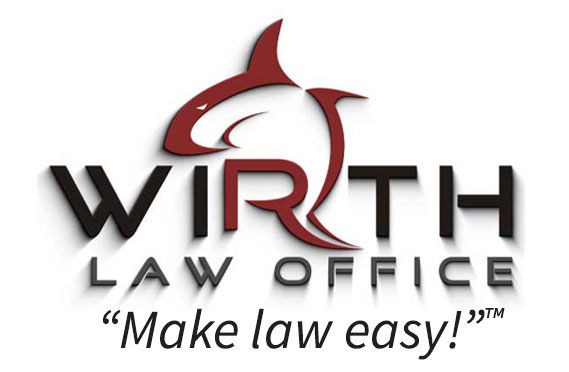Protective Orders: Protection When You Need It

Oklahoma has several types of protective orders available to individuals seeking protection from domestic violence, stalking, harassment, or threats. These orders mandate that an aggressor have no contact with, and stay away from the victim, the victim’s home and often, the victim’s workplace as well. No contact literally means no contact, not in person, by text, email, mail, or in any other manner. These orders are meant to keep the victim safe. This article is a guide on how to obtain these orders in Oklahoma.
Legal Processes to Obtain Protective Orders
Oklahoma has various types of protective orders, which vary in terms and duration, the presence or absence of a noticed hearing, and other factors. Understanding the type of order needed and how to obtain it can help a victim during a time of fear and emotional turmoil.
Emergency orders provide short-term protection in cases of extreme danger when the courts are typically closed. This type of protective order is often granted to victims of domestic abuse, stalking, harassment, threats, or sexual assault. Law enforcement officers present at the scene of a domestic abuse incident can help the victim obtain an emergency temporary protective order from a judge on call. Otherwise, the victim must contact law enforcement and make the request. Okla. Stat. tit. 22 § 60.3. This order is often granted on an ex parte basis, meaning that the aggressor (respondent) does not need to be present at the hearing. The orders are temporary, often 14 days or less. They are meant to last until the courts reopen and a formal petition can be filed.
To get an emergency protective order, the victim must go to the district court in the county where they reside or where the abuse occurred and complete and file a petition for a protective order. All petitions for protective orders must include specific incidents of abuse, threats, or harassment. A judge then reviews the petition and, if there is sufficient evidence of immediate danger, issues an emergency ex parte order if the matter is done on an emergency basis, or an order of longer duration if the matter is a noticed hearing at which the respondent has the opportunity to respond to the petition. For any scheduled hearing, the aggressor must be served with a copy of the protective order being sought and a notice of the hearing.
Final protective orders provide long-term protection following a full hearing. To get a final order, the victim must attend a full hearing and present evidence of their potential danger. The aggressor (respondent) can also appear and present evidence opposing the issuance of a protective order. (Okla. Stat. tit. 22 § 60.4.) A final protective order can last up to five years and can be extended upon request.
Victim Protective Orders (VPOs)
Victim protective orders are available to individuals who have been physically abused or threatened with imminent physical harm by a person within the family or household. This could be a spouse, partner, child, or other person within the household. No police report is needed for this type of order. A police report is required if the aggressor is a person outside the family or household. The judge may issue an emergency ex parte order for immediate protection. A full hearing will be scheduled to determine the need for a final VPO. Okla. Stat. tit. 22 §§ 60.2, 60.4.
Filing a Petition for a Protective Order
The petition must be filed in the district court in the county where the victim resides, where the abuse occurred, or where the abuser can be found. An experienced family law or criminal law attorney can help the victim prepare and file the petition. An attorney can make sure that the petition contains all the necessary facts succinctly. Otherwise, the court clerk can provide the necessary forms to the victim.
The petition must contain detailed descriptions of the incidents and the relief sought. It is important to give a clear, detailed description of the abuse, threats, harassment, or stalking incidents leading to the petition and the type of relief being sought.
Types of Relief
Courts have broad discretion regarding the relief sought in a protective order. (Okla. Stat. tit. 22 § 60.4.) Types of relief typically sought and granted can include:
No Contact: This includes all types of contact including physical contact, phone calls, texts, emails, social media, or third parties, and no indirect contact or harassment.
Stay-Away Provisions: The respondent can be ordered to stay away from certain locations, including home, workplace, school, or other places frequented by the petitioner, such as a relative’s home or a child’s school.
Exclusive Use of Home: The court can order the respondent to move out of a shared residence and grant the petitioner exclusive use of the home, regardless of ownership or lease status.
Temporary Custody of Children: The court can grant the petitioner temporary custody of any children shared with the respondent. This includes establishing temporary parenting time or visitation schedules and restricting the respondent’s access to the children to protect them from harm.
Temporary Child Support and Spousal Support: The court may order the respondent to pay temporary child support or spousal support (alimony) to the petitioner if they were financially dependent on the respondent.
Surrender of Firearms: The court can order the respondent to surrender any firearms or other dangerous weapons to law enforcement to prevent further violence or threats.
Counseling or Treatment Orders: The court may require the respondent to undergo counseling, anger management, substance abuse treatment, or other appropriate programs as a condition of the protective order.
Restitution: The respondent may be ordered to pay for expenses related to the abuse, such as medical bills, property damage, lost wages, or other costs incurred by the petitioner because of the abuse.
Temporary Possession of Personal Property: The court can grant the petitioner temporary possession of personal property, such as a vehicle, clothing, or other essential items, particularly if the petitioner had to leave the shared home.
Other Relief as Deemed Necessary: The court may grant any other relief deemed necessary to protect the petitioner from harm. This can include orders specific to the circumstances of the case. Therefore, it is important to prepare a complete petition and to be clear about the remedy sought.
Evidence to Present at the Hearing
Evidence must be gathered and presented to support the facts alleged and the relief sought. This can include personal testimony of the incidents of abuse, threats, or harassment. Witness testimony can corroborate the victim’s statements. Photos of injuries or property damage are persuasive evidence as are medical records of injuries and treatment received by the victim. Copies of emails, texts, or social media messages showing threats or harassment should be presented at the hearing along with copies of the police report or reports filed.
The victim must present their evidence and testimony clearly and concisely, explaining the need for a final protective order. It is important to stay calm and be prepared for the respondent to present their side of the story. Having an attorney at the hearing can help the victim present their case clearly and calmly. Wagoner criminal defense lawyers and family law attorneys are usually familiar with protective orders.
Once the orders are obtained, the order must be served on the respondent. Law enforcement can assist in the service. The court or victim should notify local law enforcement to assist in enforcement of the order. Finally, it is important to report any violations of the protective order to law enforcement. Violations can result in criminal charges.
Protective orders can be renewed upon a noticed motion and hearing. By following these steps and utilizing available resources, individuals in Oklahoma can obtain and enforce protective orders to ensure their safety and well-being.
Call for an Initial Strategy Session
For a low-cost consultation with a Wagoner Oklahoma lawyer call the Wirth Law Office – Wagoner at (918) 485-0335 (or toll-free at (888) Wirth-Law). Or, as always, you may enter a legal question in the form at the top right of this page.







